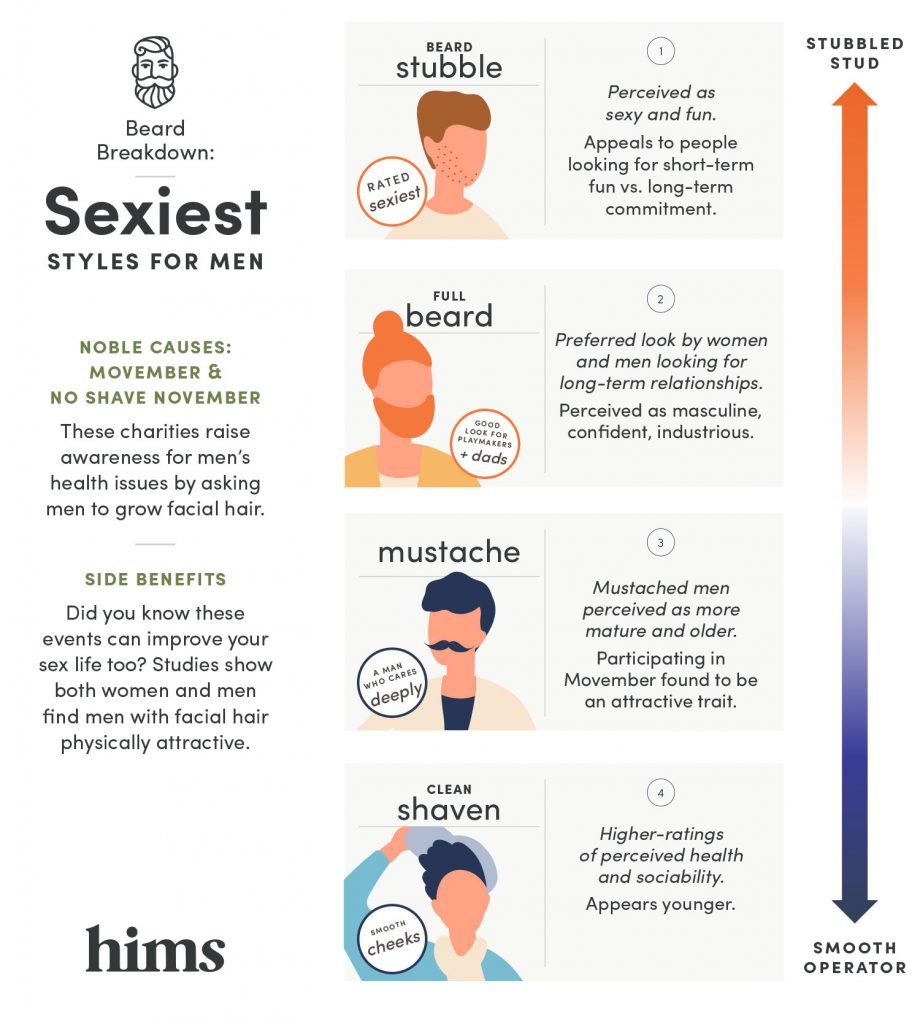Throughout the month of November, men all over the world participated in Movember or No-Shave November. These charities help to raise awareness for men’s health issues such as prostate cancer, testicular cancer, colorectal cancer, and mental health. Even if you didn’t participate, there are plenty of lessons that can be learned from this month of charity and awareness.

Incorporating some or all of these lessons into your life can have great benefits on your health and can help others too.
1. Diet and exercise
While Movember and No-Shave November spread awareness about specific men’s health issues, the overall goal is to get men to lead healthier, longer lives. It goes without saying, but the best way to achieve an overall healthier lifestyle is by making changes to your diet and exercise. This does not mean going on some crazy fad diet or exercising for several hours every day. Subtle, easy changes over time can make a world of difference. Try to aim for the following:
● 5 servings of fruit and vegetables a day
● 30 minutes of exercise a day
● 8 glasses of water a day
● Limited consumption of red meat
● Cutting back or completely quitting alcohol and/or smoking
● Sleeping 7-9 hours every night
It may be difficult to achieve these goals, so don’t try to incorporate them all at once. Working your way up to reaching your final objective will ensure that you won’t revert back to old ways. Joining a fitness group or asking friends/family to improve with you are just a few ways for extra motivation. If you need a more specific approach or guidance, considering contacting a physician, nutritionist, or personal trainer.
2. Get checked regularly
For many of the men’s health issues at the heart of Movember and No-Shave November, the best way to combat the disease is to get examined on a regular basis. For testicular cancer, a testicular self-exam is something that you can do right from your home. On the other hand, prostate and colorectal cancer screening require a physician, but are nothing to fear. When to start receiving each exam and the frequency in which you do depends on several factors such as age and family history.
Testicular Cancer
● The most common cancer among young men in the United States
● Men should start doing self-exams between age 15 to 18
● Every man should do a self-exam on a monthly basis
Prostate Cancer
● The second most common cancer among all men in the United States
● Men should consult their physician about PSA testing at age 50
● African Americans and men with a family history of prostate cancer should consult their physician at age 45
● Be on the lookout for symptoms of prostate cancer, including: frequent urination, trouble urinating, blood in urine/semen, painful ejaculation, etc.
Colorectal Cancer
● Colorectal cancers are #2 cause of cancer deaths in the United States
● All adults should start getting screened at age 50
● Symptoms of colorectal cancer include ongoing change in bowel habits and blood in stool, however, early stages sometimes show no signs
● Consult your physician earlier than age 50 depending on family history
3. Don’t wait to go to the doctor
Men are much less likely to go to the doctor than women. One study found that the primary care consultation rate for men was 32% lower than that of women. When men are not routinely visiting the doctor, their chance of catching cancer and other diseases in the early stages is diminished. The later a cancer is diagnosed, the more difficult it becomes to treat and the less likely it becomes to survive. Here are just a few facts:
● Prostate cancer has a 98% survival rate after 5 years when detected early, but only 26% when detected late
● 1 in 3 adults over the age of 50 are not being screened for colorectal cancers
● Catching testicular cancer early enough to preserve one testicle should not inhibit sexual function or the ability to have children
4. Become more intimate
Raising awareness for men’s health issues should also remind everyone to relish the joys in life. Not only is making more time for intimacy with your partner one of life’s greatest joys, but it also carries plenty of other health benefits as well. However, just like other men’s health issues, there is plenty of stigma surrounding issues with sex. If you or your partner suffers from erectile dysfunction, considering consulting a physician, who may recommend lifestyle changes or prescribe medication for ED.
Benefits of Having More Sex
● May lower risk of prostate cancer
● Boosts your immune system
● Relieves anxiety
● Good exercise
● Improves sleep
● Relieves headaches
Additionally, Movember and No-Shave November work great in helping you achieve this goal and reap the benefits of having more sex. A study from the Journal of Evolutionary Biology found that women find men with facial hair objectively more attractive. Based on 8,520 women participants, here are the most coveted styles:
5. Talk with others
Stigma surrounding men’s health issues is not the only reason why men do not visit the doctor regularly, but it is certainly a main factor. One of the main purposes of these charities is to spread awareness by educating yourself and then educating others. If men weren’t afraid to discuss the issues, then they shouldn’t be afraid to get themselves checked. Out of all of the issues at the heart of these charities, perhaps, talking with others is most important to addressing mental health. Did you know that 75% of all suicides in the United States are men? A majority of people say they will be there for friends and family, yet a majority also say they are uncomfortable with asking for assistance. Movember advocates taking action on mental health by talking, asking, listening, encouraging action, and checking in. Here are a few resources that may help:
● https://suicidepreventionlifeline.org/ or call 1-800-273-8255
● https://www.mentalhealth.gov/
When a life is in danger, contact emergency authorities immediately or dial 911.


























